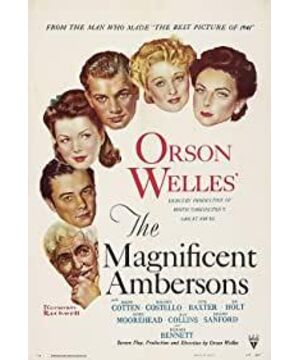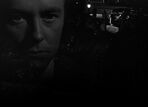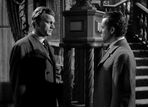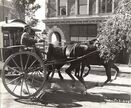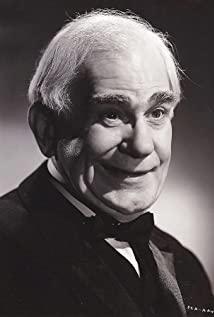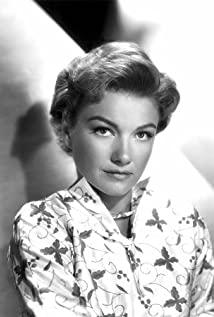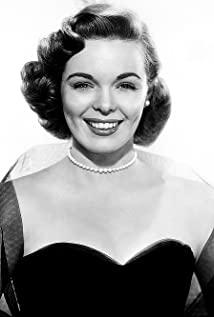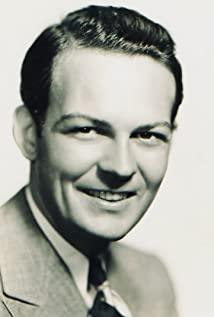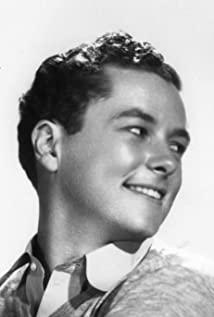Orson Welles is an artistically innovative and talented director, best known for "Citizen Kane". "Citizen Kane" freed the film from the shackles of the traditional pattern for the first time and created a precedent for modern film. However, it was both the beginning and the end of Welles' filmmaking career. This artistic genius, who is always in front of the audience with whimsical ideas, has struggled with the contradiction between art and business for almost his entire life. He could not be seen in Hollywood, and traveled to Europe for many years. Due to lack of funds, his films were often completed in harsh conditions with intermittent shooting. He made about 14 films in his life, which is probably the lowest number among famous Western directors. Until his death in October 1985, he was never able to surpass his debut. Nonetheless, Bazin remarked, "Orson Welles still deserves a prominent place on the forehead of any triumphal arch that honors the history of cinema."
"The Ambersons" is Welles' second film. After he completed Citizen Kane in 1941, he considered several possible subjects. RKO's managers couldn't forgive him for ignoring the box office in "Citizen Kane" because of art, which resulted in huge losses for the company, and strictly ordered him to put commercial benefits first in the next film. He considered adapting Dickens' The Pickwick Papers or Zoe Atkin's Famine on the Red River, but both fell through for a variety of reasons. In the end, he chose Booth Tarkington's (1869-1946) novel, "The Abesons," which was not very good. Wells adapted the 1919 Pulitzer Prize-winning novel into a radio play in 1939, with himself as the main character. Wells loves this novel very much because Tuckington is an old friend of Wells' parents, and the prototype of the car inventor Eugene in the novel is Welles' father, and the story takes place in the same place as Welles. Wells' living conditions are very similar. Wells has always preferred literary works of the late 19th and early 20th centuries, not to mention that this novel is inextricably linked to him, so it has a special attraction to him.
Wells took nine days to write the script. He strips out all the sentimentality in the original, focusing on the dark psychology that led to the decline of the Abeson family. In his own words, his films are "an elegy to a dead morality rather than an era".
The film is generally regarded as Welles' "quasi" masterpiece after "Citizen Kane". The reason why it can't be called a masterpiece is not because of the director's fault, but because the film was "savagely hacked and killed" by RKO after the filming. As soon as Welles finished filming the film, RKO moved him away and sent him to Brazil to shoot a government-funded documentary, "True and Unmistakable." While he was stranded in South America, the company arbitrarily cut nearly 60 minutes of the original 148-minute finished film. The injury was especially serious when the company hired someone to film the ending, the scene in the hospital. As far as the fidelity of the adaptation is concerned, this change has been improved. Unfortunately, the reason why the original novel is difficult to enter the forest of masterpieces is precisely because the author did not treat it as a tragedy, but used a reunion-style ending to please people. The results are inevitably superficial. According to Wells' original idea, the ending should be Eugene coming to Fanny's pantry, asking her to house him and take care of his life, while mentioning that George and Lucy are about to get married. Fanny rejected his suggestion, and Eugene walked out of the dormitory after leaving. The background of the booming city set off his solitary body, symbolizing that in this chaotic and ignorant social environment, his rise was just a single battle. Wells has complained that the altered ending "destroys the entire heart of the film".
The original 148-minute version is nowhere to be seen, but this "cut to pieces" (in Truffaut's language) still holds a place that cannot be ignored in film history and in Wells' work. In 1972, it was no accident that the influential American film magazine Picture & Sound ranked "Ambersons" ninth in its selection of the best films of all time.
The story of the film takes place in those years of the late 19th and early 20th centuries, the so-called "turn of the century". Although capitalism in the United States had developed at that time, feudal remnants of ideology still existed to varying degrees, especially in the relatively backward southern states. The place where the story takes place is a small town in the middle of the United States, which is on the border between north and south, so it has both the backward side of the southern states and the advanced influence of the eastern states. "The Abeson Family" uses vivid characters to express the struggle between the advanced and the backward ideological forces.
Unlike Wells' other films, "Ambersons" doesn't focus on one or two main characters. It depicts seven main characters, each with its own representative meaning. Selfish and vicious George is the last bastion of a declining landlord family. Eugene is the representative of the new industrialists, gentle and generous. Isabelle sacrificed her love for the hypocrisy of the landlord and spent her life wasted in depression. Fanny is a potential rebel in the Abeson clan, but she has an infinite nostalgia for the landlord family in the depths of her emotions. Lucy belongs to a new generation with a bright future, she is emotional but not carried away by it. Major Abeson is the entrepreneur of the family. He lived to see the decline of the family, but he did not hold grudges. He was always a strong man in spirit. Although Jack is a member of the big family, he contrasts with the greedy George, who likes Eugene and is a calm bystander in the changing times. Wells also added an off-screen narrator (by himself) to the film, allowing him to play the dual role of introducing the audience to the background of the times and delving into the inner world of the characters. Having an off-screen narrator in a feature film was a novelty in 1942. This may be the imprint of Welles' long experience in radio drama on the silver screen.
Among the above seven main characters, the opposite poles are Eugene and George. From these two people, the contradiction between the old and the new forces is typical. Some critics in the West tend to describe their conflict as a fight for Isabelle. "It was a purely emotional conflict," Truffaut said, with Isabel as the target. Bazin also believes that what hinders Eugene and Isabelle is George's self-esteem and some kind of Oedipal complex.
But in fact, from the moment he met this exuberant new bourgeois figure, George instinctively felt Eugene's threat to George's old world. It wasn't until a head-to-head confrontation at the dinner table much later that Fanny spoke out of Eugene's love for Isabel out of jealousy. This is even more fueling the fire. Isabelle doted on George so much that "from the day he was born, he literally fell at his feet and made him a god." In her eyes, this "devil" is an "angel". George has grasped his mother's weakness since he was a child, used and controlled it, and can completely control his mother's fate. Therefore, his objection to the union of his mother and Eugene is based on his disgust and extreme selfishness towards Eugene, not Freud. The so-called "Oedipus complex" of Oedipus is at fault.
Also of interest is the relationship of the central character, George, to the other characters and the relationship of the other six characters to each other. These relationships are intricate, love or hate, use each other, or depend on each other, and almost any character can drive the development of the plot as long as they meet each other. These seven characters can be combined into no less than a dozen vivid and interesting character relationships. As a Western critic said, "It is like seven parts that are always incompatible with each other. They appear alternately, develop independently, and have no chords. It takes a genius to interweave them."
A major guarantee of the success of the film is the excellent performances of the actors. Wells put a lot of effort into directing the actors. Together with the actors, he analyzed the characters in depth, and performed overall rehearsals before shooting each scene. He often allows actors to change their lines based on their understanding of the character. Wells himself didn't show up (a rare exception in Welles's films), and he chose to play George, who looked very similar to him, Tim Holt. Although the American film critics, except James Archie, were full of hostility and criticized the film, Agnes Moorehead, who played Isabelle, still won the New York Film Critics Award for her delicate performance.
Like "Citizen Kane," "The Abesons" was a commercial flop. The New York Times lamented that Welles wasted his brilliance on "a play with a dull theme and a somber atmosphere." The contradiction between art and commerce is sometimes irreconcilable, and in Wells, the "immutable romantic", it will remain forever.
View more about The Magnificent Ambersons reviews


